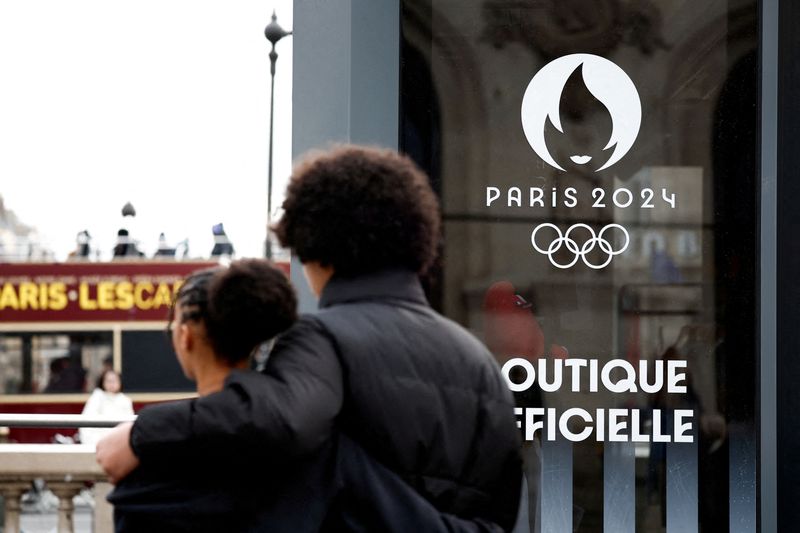By Marc Jones
LONDON (Reuters) -Paris' "lean" Olympics are unlikely to do any lasting damage to France's finances, thanks to 95% of its venues either already being built or needing only minor refurbishment, credit rating agency S&P Global estimated in a report on Monday.
The near 9 billion euro, or $10 billion, budget to host the July and August games is comfortably below those of Tokyo, Rio and London and only a fraction of the record $52.7 billion Beijing is estimated to have spent in 2008.
Paris' main outlays have included just three major builds - its Olympics Village expected to cost about 1.5 billion euros ($1.64 billion), the Aquatics Centre at 175 million euros and a 138 million euros badminton and gymnastics arena.
"We do not expect the games to weigh significantly on French public-sector entities, including Paris and the central government," S&P, which specialises in assessing creditworthiness, said.
The budget is expected to be event split between 4.5 billion euros being spent on new venues and facilities and the other 4.4 billion euros on related operating expenses such as hosting and running transport networks.
S&P's AA credit rating on France is two steps below the AAA maximum countries can have. It also has a "negative outlook" on the country, which is a red flag that the rating could get cut.
France's overall public spending on the Games, including by the state and local and regional authorities like Paris, will be only 28% of the total budget S&P estimates.
Ticket sales and TV and marketing deals should bring in around 4.2 billion euros which could cover up to 96% of total operating costs, according to the International Olympic Committee (IOC).
France's government has agreed to provide the IOC with 3 billion euros guarantee, which equates to 0.1% of its GDP.
The tax windfall from full hotels and restaurants and other visitor-related spending should also help cover the bill, with the government saying the economic benefits could be as high as 10 billion euros.
Cost overruns remain a risk however if past games are anything to go by.
London's 2012 Olympics overspent by more than $5 billion. Tokyo overran by nearly $26 billion after the COVID-19 pandemic forced it to delay its 2020 games by eight months and then spectators were not allowed, while the state of Rio de Janeiro defaulted in 2016 after the cost of its games saw its debt levels soar.
Montreal remains the worst example in Olympic history however. The bill came in at 13 times the original estimate and the cost of the main stadium took more than 30 years to repay in full.
Paris' infrastructure spending has overshot the initial budget by over 37% compared with its 2016 projection although it is more moderate 14 percentage points once inflation is factored in. Its operating expense budget has ballooned 15% compared with 2019 estimates.

"With the games yet to happen, budgetary slippages are still a risk," S&P said.
($1 = 0.9158 euros)